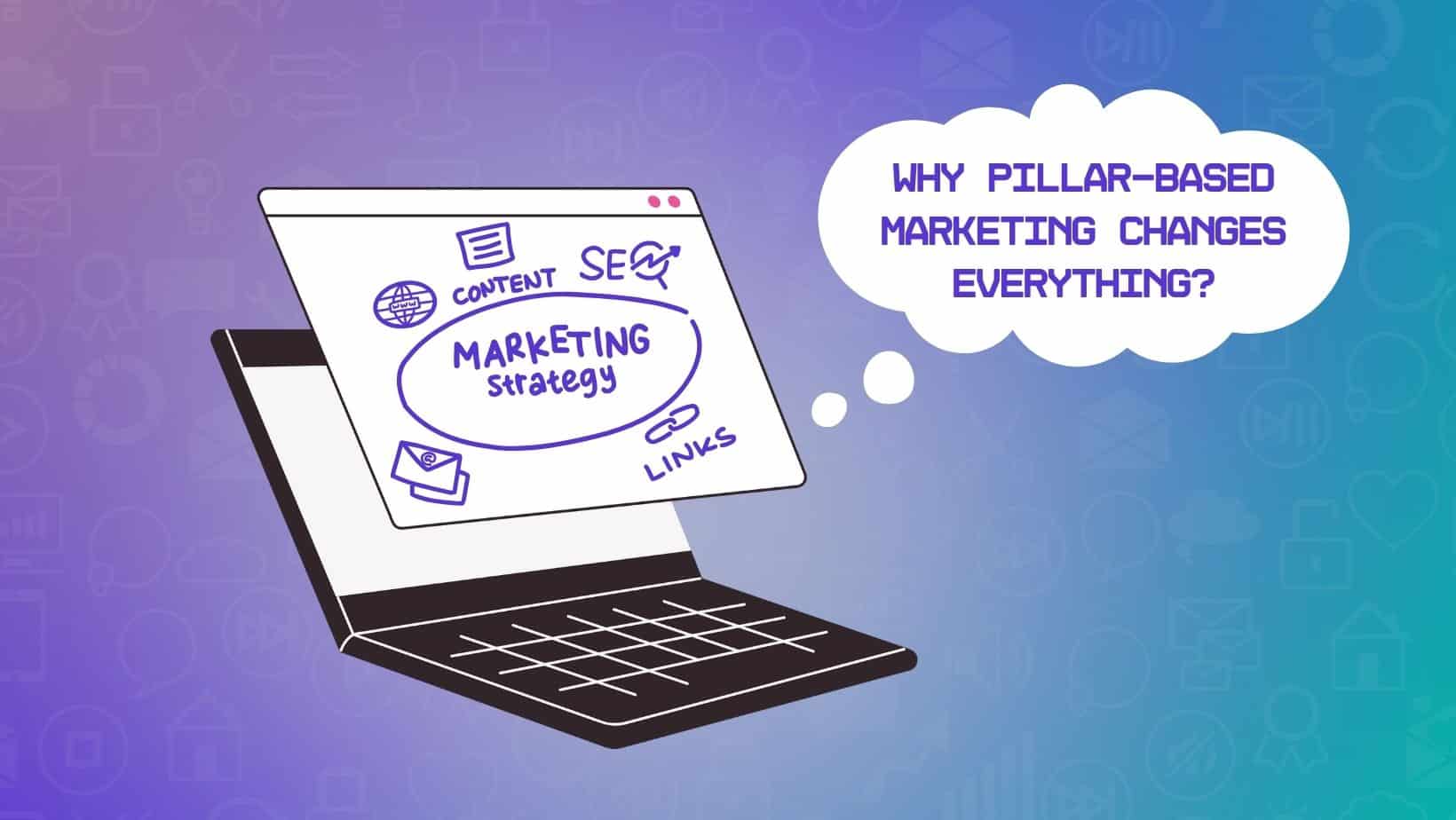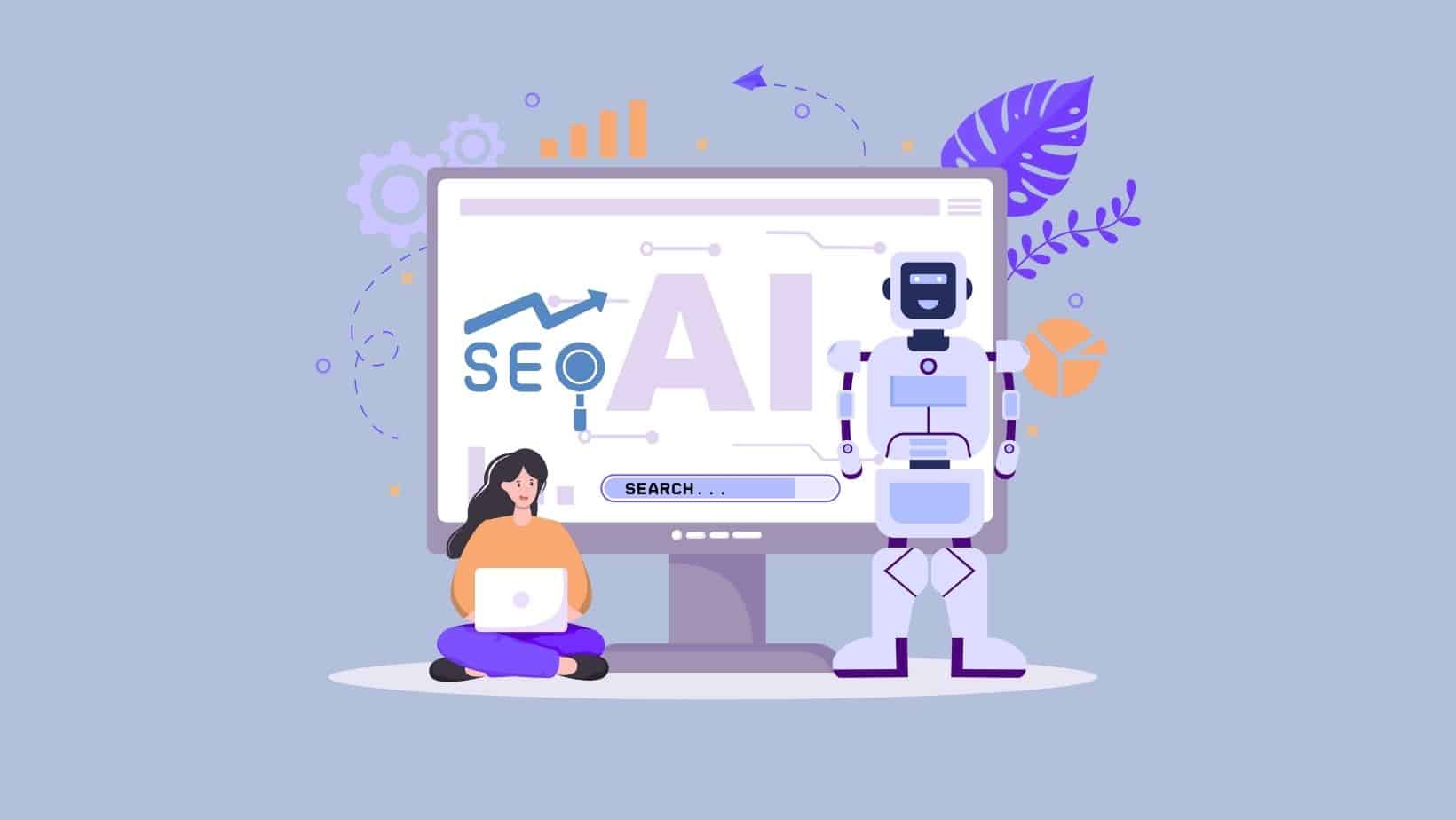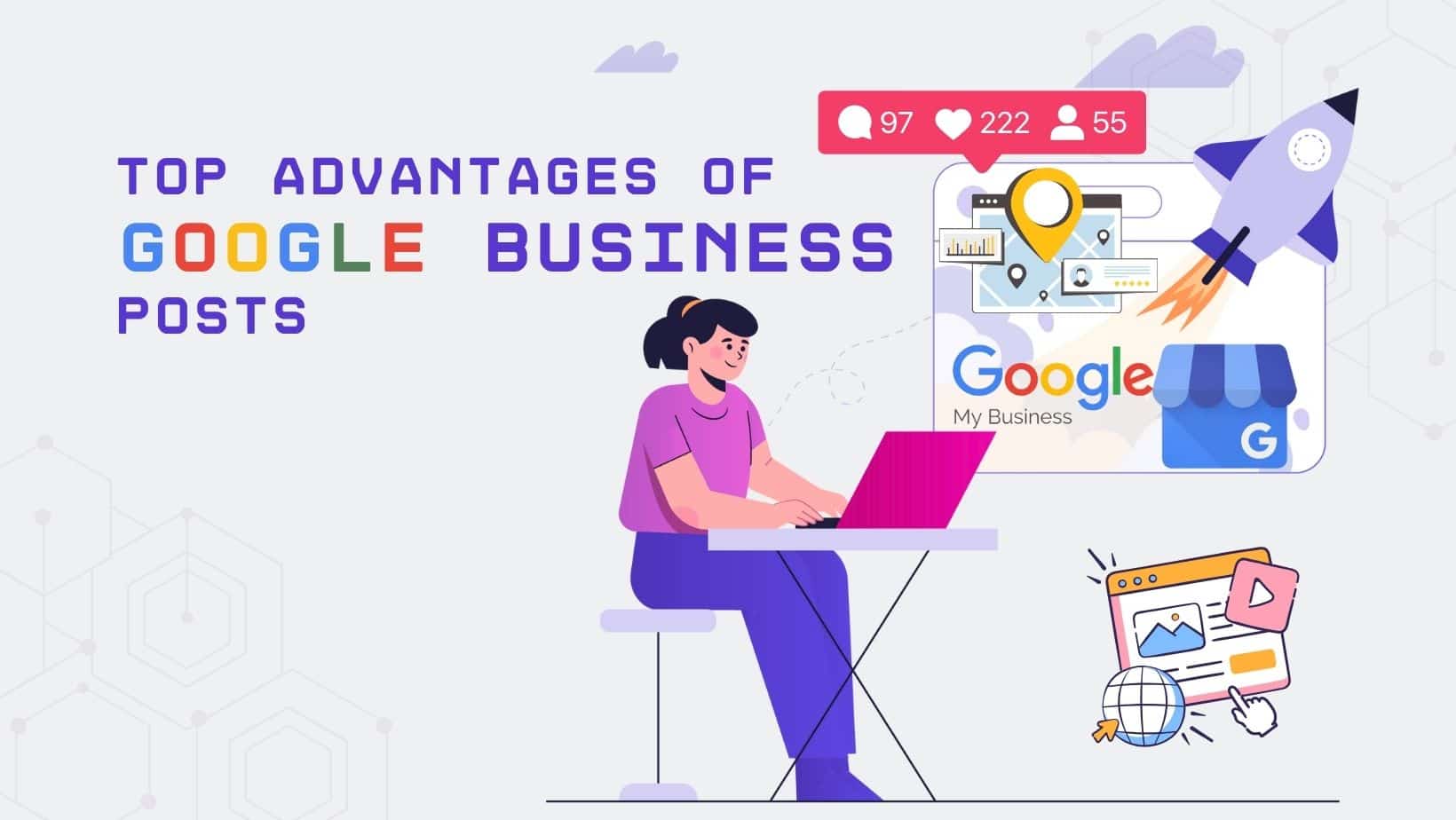Nowadays, it seems like if you look around, you’ll see AI everywhere you go. It’s all that everyone talks about, and for good reason. As of now, there are 8,000+ AI tools for more than 4,000 jobs, which means that AI is changing the game in virtually every industry.
As a result, it’s no surprise that marketing is being heavily impacted by this AI revolution as well! From tools that predict customer behavior to personalized chatbots, AI is changing the way we think about and approach marketing. But how exactly will this affect each category of marketing? Let’s take a closer look.
1. Search Engine Optimization (SEO)
Starting with SEO, AI technology can significantly improve the way we optimize our websites for search engines. This is largely due to its ability to analyze large amounts of data in a fraction of the time it would take a human to do the same. By analyzing user behavior, search patterns, and other data points, AI can then generate insights and recommendations for SEO strategies and tactics.
On top of that, certain processes such as keyword research, link building, and site audits can be automated and streamlined using AI. This can save SEO marketers and professionals valuable time and resources, while also improving the overall quality and effectiveness of their campaigns.
Two popular examples of AI-powered SEO tools are SEMRush and Serpstat, which use machine learning algorithms to analyze and suggest keywords, backlinks, and content optimization strategies for websites.
2. Search Engine Marketing (SEM)
Similar to SEO, AI can also play a huge role in improving the effectiveness of search engine marketing campaigns.
With SEM, AI-powered tools can analyze data such as click-through rates, conversion rates, and cost-per-click to optimize ad campaigns in real time. This means that ads are constantly being adjusted and improved based on user behavior and performance, resulting in better ROI for businesses.
Platforms like Google Ads are already utilizing AI to improve ad targeting and bidding strategies, and we’ll likely see more advanced forms of AI being integrated into SEM in the near future.
3. Social Media Marketing (SMM)
The impact that AI has had on social media marketing is beyond significant. With the vast amounts of data being generated on social media platforms, AI can help businesses make sense of it all and use it to their advantage. That applies to all aspects of social media marketing, from content creation to audience targeting.
For instance, AI-powered tools like Hootsuite can analyze and suggest the best times to post on social media for maximum engagement, while also providing insights into trending topics and hashtags that businesses can use in their posts.
But that isn’t all – there are even tools that write captions and create graphics for social media posts using AI, like Copy.ai and Canva. Better yet, some tools are now capable of responding to comments and messages on social media, like ManyChat. Social media has never been more automated thanks to AI.

4. Pay-Per-Click (PPC) Advertising
As for PPC advertising, AI has changed the game entirely. In the past, businesses would have to manually analyze data and adjust their ads accordingly, which was a time-consuming process. Even then, it was still difficult to target the right audience and optimize bids.
But now, AI-powered tools can analyze user data from various sources, including search behavior, social media activity, and online purchases, to pinpoint the audience most likely to engage with your ads. Not only that, but AI can also automatically adjust bids and optimize ad spend in real time based on performance data.
It’s for that reason that Google Ads has integrated AI into its platform through its Smart Bidding feature, which uses machine learning algorithms to manage bids and maximize conversions. This level of automation and optimization has made PPC advertising more efficient and effective than ever before.
5. Affiliate Marketing
What’s the hardest part of managing an affiliate marketing campaign? The data. It can be overwhelming to sift through all the numbers and make sense of it all. That’s precisely where AI comes in. Today, AI tools are capable of quickly analyzing affiliate campaign data and providing actionable insights, all with the click of a button.
One example is Affiliate.ai‘s Instant Assistant, which utilizes natural language processing to quickly act upon campaign data in an easy-to-understand format. It’s the first of its kind in the affiliate marketing space, and it’s paving the way for more advanced AI-powered tools to come.
But that’s not all – AI-powered recommendation tools are also on the horizon, dishing out tailored content and product suggestions to affiliates based on real-time data analysis. This not only streamlines the process but also increases the chances of successful conversions.
This level of automation has drastically cut down on the time and effort needed to manage campaigns, meanwhile increasing their success rates.
6. Content Marketing
Content marketing – where do we even begin? The number of AI-powered tools for content creation and marketing is practically endless. From automated content writing using tools like ChatGPT and Jasper (among a million others) to AI-driven content performance analysis tools like MarketMuse and BuzzSumo, businesses are now able to create, distribute, and analyze content at a level never seen before.
Whereas traditional content marketing required extensive research, planning, and manual execution, AI-powered tools are now able to handle these tasks with speed and accuracy. This means that businesses can focus on creating high-quality content while leaving the technical work to the machines.
But perhaps the most noteworthy aspect of AI in content marketing is its ability to tailor content for specific audiences. With AI, businesses can now personalize content based on user data, preferences, and behaviors. This not only improves the overall user experience but also increases engagement and conversion rates.
7. Email Marketing
When it comes to email marketing, personalization and automation are the 2 key factors that can make or break a campaign. And AI has come a long way in helping businesses achieve both.
AI-powered email marketing tools now have advanced targeting capabilities that can segment audiences based on demographics, interests, past interactions, and more. This ensures that each recipient receives content that is relevant and tailored to their needs and preferences. Gone are the days of bulk, one-size-fits-all email blasts.
As for automation, forget about manually scheduling and sending emails – AI can handle that on its own. With the help of algorithms and machine learning, email marketing campaigns can now be automated based on triggers such as user actions, time zones, and more. The result? Personalized, timely, and effective email campaigns that can save businesses time and effort while still delivering impressive results.
But AI isn’t just limited to personalization and automation in email marketing. It also has the ability to analyze data and provide insights into campaign performance. This allows businesses to make data-driven decisions and continuously improve their email marketing strategy for better results.

8. Graphic Design
AI is impressive on all fronts, but have you ever watched a robot create a stunning graphic design? Well, now you can.
AI-powered graphic design tools use algorithms to generate unique designs based on user input and preferences. This not only saves time for businesses but also eliminates the need for expensive graphic designers. For instance, Canva now offers an AI-powered tool called Magic Design that can instantly create professional-looking designs if you simply input some basic information and select a layout.
Not only that, but it also made a lot of mundane design tasks easier and more efficient. For example, generating color palettes, optimizing images for different platforms and devices, and even creating mockups can now be done in no time with AI.
As a result, visually appealing designs can be created at a faster pace, with higher outputs, and at lower costs. And designers can focus on more creative aspects of their work!
9. Web Design
Creating a website from scratch can be a daunting task, but with AI-powered tools, it’s becoming easier and more accessible for businesses of all sizes. As a matter of fact, some websites are now entirely generated by AI, from layout and design to content creation.
Even for custom-designed websites, 93% of web designers have stated that they’ve used an AI tool or technology in the last three months to assist them with tasks such as gathering inspiration, automating coding, and optimizing site performance. This not only saves time but also allows designers to focus on more complex and creative aspects of web design.
AI is also adding a lot of value to user experience on websites. From chatbots and personalized product recommendations to dynamic pricing and predictive search, these tools are helping businesses create a more personalized and efficient online experience for their customers.
With AI-powered web design tools, businesses can now create visually appealing, user-friendly, and high-performing websites in a shorter amount of time, with fewer resources. It’s a win-win situation for both designers and businesses, as it allows for more efficient and effective web design processes.
10. Copywriting
Similar to content writing, AI is equally making its way into the world of copywriting. From email marketing and social media posts to product descriptions, sales pages, ad campaigns, and beyond, AI is helping businesses craft compelling copy with ease. That’s thanks to its natural language processing (NLP) capabilities, which allow tools to generate human-like text that’s grammatically correct and cohesive.
Over and above that, because effective copywriting involves a great deal of research, customer insights, psychology, and creativity, AI-powered tools are even equipped to help pinpoint the most effective language and messaging for specific target audiences. The more data these tools gather and analyze, the more accurate and successful their suggestions become.
As AI continues to evolve and improve its capabilities in copywriting, more businesses are looking to streamline their content creation processes and elevate the effectiveness of their messaging.
11. Communications & Public Relations
For the longest time, PR departments relied on traditional media monitoring methods to track and analyze media coverage. They’d spend hours manually scouring through news articles, social media mentions, and other online content to gauge the sentiment toward their clients or organizations. Needless to say, keeping up with the constant influx of information was becoming more challenging than ever.
However, with the rise of AI-powered sentiment analysis, PR professionals can now efficiently monitor and evaluate media coverage, track brand perception, and identify opportunities for media engagement without being overwhelmed by the sheer volume of data. That’s all because AI tools, like Mention, can automatically scan and categorize large volumes of media mentions based on their sentiment, providing a comprehensive overview of public opinion.
And if they detect any potential negative sentiments, AI-powered tools, like PressPal, can even be trained to respond to and manage crisis communications in real time.
This not only saves time but also minimizes the risk of human error or subjective bias. As a result, PR professionals can now focus on developing strategic messaging and building relationships with journalists and other media outlets.
12. Advertising
There are many types of advertising, ranging from traditional methods like print and television advertisements to newer forms like display ads, video ads, social media ads, and more. However, with the increasing number of digital channels, it’s becoming more challenging for businesses to determine which type of advertising is most effective in reaching their target audience.
This is where AI-powered ad optimization comes into play. By analyzing massive amounts of data, AI tools can help businesses identify the most effective channels, placements, and messages for their ads. This not only saves time and resources but also ensures that advertising efforts are targeted and relevant to the audience.
While not too long ago, guessing was the norm when it came to ad placement and messaging, today’s AI technology allows for data-driven decision-making. By constantly analyzing and adjusting campaigns in real time, businesses can ensure that their advertisements are always optimized for maximum impact.
A/B testing, for example, can be done automatically and quickly with AI tools, allowing businesses to constantly improve their ads without having to manually make changes.
13. Mobile Marketing
It’s now a given that businesses can no longer ignore the potential of reaching customers through their mobile devices. While it previously took a lot of hard work and investment to harness mobile marketing, today’s AI technology has made it easier to create personalized and effective marketing campaigns for mobile users.
For instance, it’s now possible for AI tools to analyze mobile data from various sources like location, browsing behavior, and purchasing history to create targeted mobile ads. This ensures that businesses can reach customers with the right message at the right time, increasing the chances of conversion.

Take location-based marketing as an example. AI-powered tools can analyze data from a user’s location to deliver relevant ads based on their geographic location, increasing the chances of engagement and conversions. This level of personalization and targeting wasn’t possible before AI technology.
That’s just one aspect of mobile marketing, but it also applies to other forms of mobile communication like SMS, push notifications, and in-app messaging. With AI technology, businesses can understand their customers at a deeper level and deliver highly personalized and relevant messages that resonate with them.
14. Customer Service
Customer service has an all-new meaning with the integration of AI technology. Today, businesses can use chatbots and virtual assistants to provide immediate assistance and support to customers around the clock.
With advancements in natural language processing (NLP) and machine learning, these AI-powered bots can understand customer inquiries and respond accurately, providing a seamless experience for users. This not only improves customer satisfaction but also reduces the burden on customer service teams.

Moreover, AI technology enables businesses to analyze customer interactions and feedback to identify areas for improvement in their products or services. This valuable data can help businesses enhance their offerings and provide better customer experiences. So, not only does AI technology improve customer service, but it also helps businesses continuously improve and evolve.
15. E-commerce
E-commerce has experienced tremendous growth in recent years, and AI technology has played a significant role in this success. With the help of AI-powered tools, businesses can analyze vast amounts of data from customer behavior, purchase history, and preferences to personalize product recommendations.
This level of personalization leads to increased sales and customer satisfaction as customers feel understood and catered to by the business. Additionally, AI technology can also assist in automating various processes in e-commerce, such as inventory management and order fulfillment, making operations more efficient and cost-effective.
Furthermore, AI-powered chatbots can provide real-time assistance to customers browsing an e-commerce website, helping them find the products they need and answer any questions they may have. This creates a seamless shopping experience for customers, increasing the chances of conversion and building customer loyalty.
16. Sales
Many businesses rely on sales to drive revenue, and AI technology can significantly enhance the effectiveness of sales teams. There are many ways AI can support sales, such as automating lead generation and scoring, making forecasting easy, predicting customer behavior, providing sales teams with personalized insights and recommendations based on data analysis, and more.
Take Aviso, for instance, an AI-driven forecasting solution that helps businesses accurately predict sales and revenue by analyzing data from various sources, such as CRM systems and customer interactions. This allows sales reps to have a better understanding of their pipeline, identify areas for improvement, and make informed decisions to close more deals.
Moreover, AI can also assist in identifying cross-sell and upsell opportunities based on customer data analysis, enabling businesses to increase sales and customer lifetime value. By leveraging AI technology, businesses can optimize their sales processes, improve productivity, and ultimately drive revenue growth.
17. Analytics
Finally, AI plays a crucial role in data analytics, providing businesses with valuable insights and predictions to inform decision-making. With the vast amount of data available today, it can be challenging for humans to analyze and make sense of it all. This is where AI comes in, as it can quickly process and analyze large volumes of data to uncover patterns, trends, and correlations that would otherwise go unnoticed.
With AI-powered analytics tools, businesses can gain a deep understanding of their customers, market trends, and business performance. This, in turn, allows them to make data-driven decisions that lead to better outcomes and competitive advantages.
One example is Google Analytics, an AI-driven web analytics tool that helps businesses track website traffic and user behavior. It utilizes machine learning algorithms to analyze data and provide valuable insights, such as which channels are driving the most traffic or which pages have the highest bounce rates.
In addition to website analytics, AI can also assist in social media analytics, email marketing metrics, and even financial data analysis. With AI-powered analytics, businesses can gain a comprehensive view of their operations and make strategic decisions that drive growth.
Are You Harnessing the Power of AI?
If there’s a clear takeaway from all of this, it’s that AI is no longer a futuristic concept – it’s here, and it’s revolutionizing the way businesses operate. It’s also here to say – it isn’t just a buzzword or a passing trend.
From streamlining processes to personalizing customer experiences to driving revenue growth, it’s no longer a luxury reserved for large corporations but has become a necessary tool for businesses of all sizes to stay competitive in today’s fast-paced digital landscape. The amount of data being generated and collected is only going to increase, and AI is the key to unlocking its potential.
So if you’re not already harnessing the power of AI in your business, now is the time to start. Explore different AI-driven tools and solutions that can help you optimize your operations, improve customer experiences, and drive growth. Don’t get left behind in the age of AI!
And if you don’t know where to start, we’re here to help at ShiftWeb. Our team can seamlessly integrate AI into your website and marketing strategies, empowering you with invaluable insights and keeping you ahead of the curve. Contact us today to learn more about our AI-powered services and how we can take your business to the next level.





